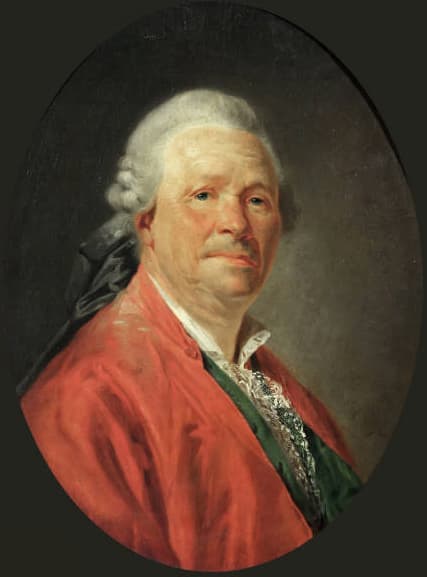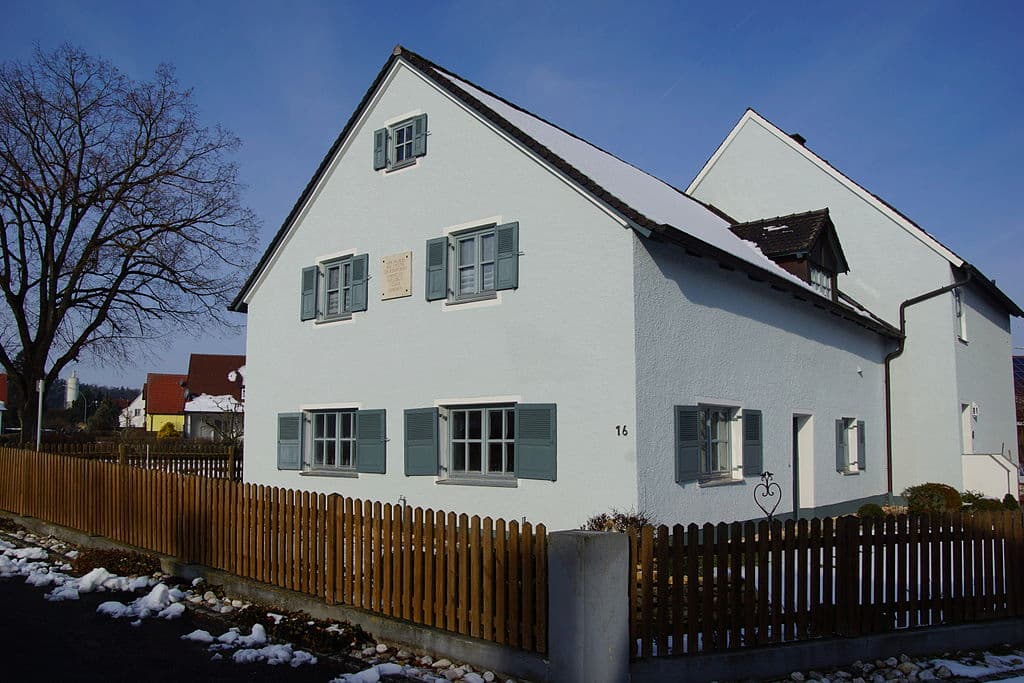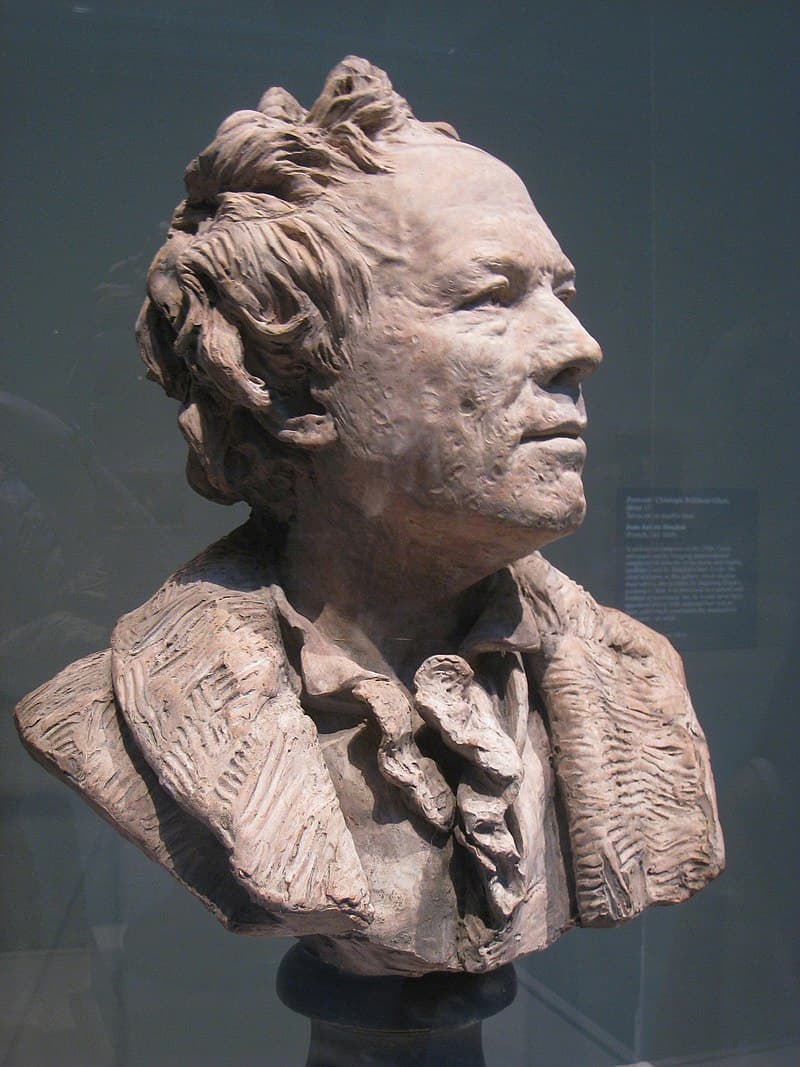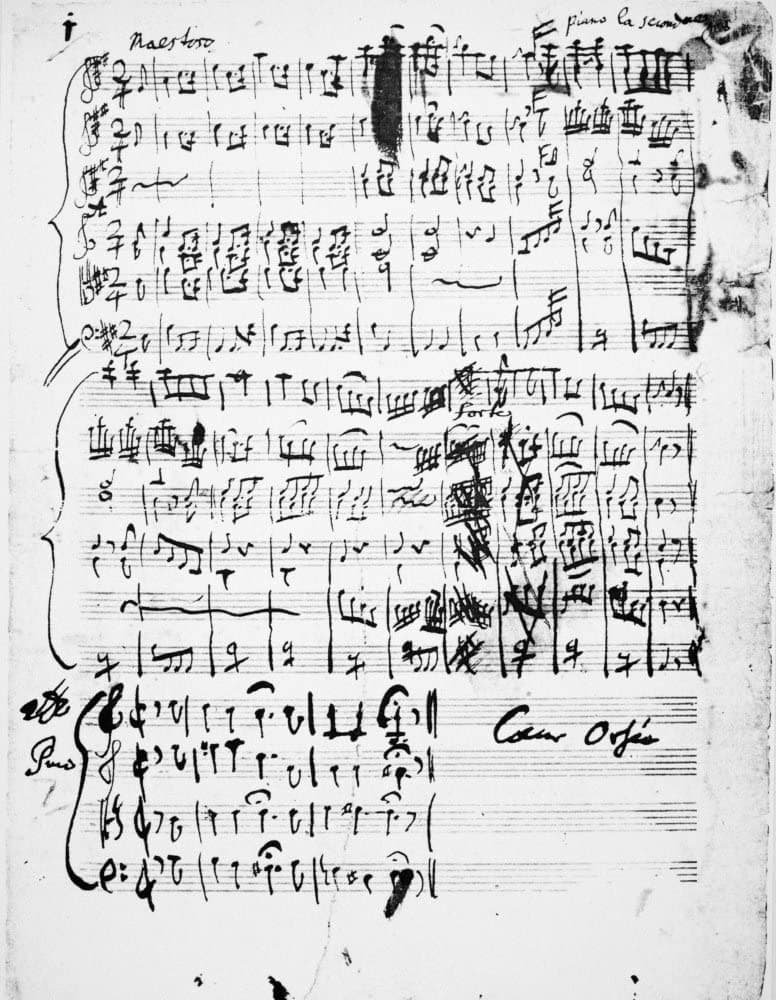Christoph Willibald Gluck was born on 2 July 1714 in Erasbach, near Berching, in Upper Palatinate. His father Alexander “was an enterprising and energetic man, who was in charge of the forestry and the toll of several wealthy monasteries.” Alexander Gluck was an upstanding member of the community, on good terms with royalty and the church alike. We know almost nothing of Gluck’s mother, Maria Walburga, but it is reasonable to assume that she grew up in the same area.

Christoph Willibald Gluck in 1777
The couple most likely married in or about 1711, and Christoph Willibald showed an interest in music from an early age. Supposedly, he studied the violin, the cello, and singing at the Jesuit College at Komotau. He also became acquainted with a variety of church music, and he would have participated in the performance of Latin school plays. Regrettably, his father did not share his son’s interest in music, and young Gluck supposedly packed his bags and ran away from home.
Christoph Willibald Gluck: Demofoonte, “Sperai vicino il lido”
As Gluck later related, “My father was forest master at N… in Bohemia and he planned that eventually I should succeed him. In my homeland everyone is musical; music is taught in the schools, and in the tiniest villages the peasants sing and play different instruments during High Mass in their churches. As I was passionate about the art, I made rapid progress. I played several instruments and the schoolmaster, singling me out from the other pupils, gave me lessons at his house when he was off duty. I no longer thought and dreamt of anything but music; the art of forestry was neglected.”

House in Erasbach, constructed in 1713 by Gluck’s father, where many believe the composer was born
As such, Gluck went to Prague to follow his musical calling, and he initially earned a living by playing the violin and violoncello at fairs. He also sang with the Prague church choirs, notably at Tyn Church and St. James. Although he was involved in a great deal of music-making in the Bohemian capital, he does not appear to have received any systematic musical education there and was largely self-taught. Gluck probably came into contact with opera, and he would certainly have been familiar with the works of Johann Adolf Hasse.
Christoph Willibald Gluck: Cleonice (Demetrio): “Dal suo gentil sembiante” (Sonia Prina, alto; IaBarocca; Ruben Jais, cond.)

Jean-Antoine Houdon: Bust of composer Christoph Willibald Gluck
Gluck eventually did depart from Prague, and basically vanishes from the historical record until 1737. However, it is pretty well established that he arrived in Vienna in 1734. The Lobkowitz family likely employed him, and he must have heard two operas by Antonio Caldara, La clemenza di Tito (1734) and Le cinesi (1735) during his stay. He also came under the influence of J. J. Fux and Georg Reuter, as well as the Italians at the Court of Charles VI, such as Conti, Badia, and Porsile. At some point, Gluck was introduced to the Milanese nobleman Prince Antonio Maria Melzi, who engaged Gluck as a member of his private orchestra in Milan. As a scholar writes, “the 65-year-old prince married the 16-year-old Maria Renata, Countess of Harrach, on 3 January 1737, and not long after returned with Gluck to Milan.” Once arrived, Gluck was introduced to one of the most important figures in Italian music, G. B. Sammartini. Apparently, he taught Gluck “practical knowledge of all the instruments, and much of his early music is imbued with the style of the older master.”
Christoph Willibald Gluck: Ipermestra, “Non hai cor per un’impresa” (Daniel Behle, tenor; Armonia Atenea; George Petrou, cond.)

An autograph music score by Gluck
Milan boasted a vibrant opera scene, and Gluck soon formed an association with one of the city’s up-and-coming opera houses, the Teatro Regio Ducale. His first opera Artaserse was performed at that location on 26 December 1741. “According to one anecdote, the public would not accept Gluck’s style until he inserted an aria in the lighter Milanese manner for contrast.” Nevertheless, the opera was a great success and was followed by commissions for seven more operas for Italy as well as collaborations on two pasticcios.
Gluck’s Milanese operas securely established his reputation as a composer, and he received an invitation from Lord Middlesex, the Director of the Italian Opera in London. Initially, Gluck performed at a number of public concerts in London, and he also met George Frederick Handel. A humorous misunderstanding paved the way for a close friendship. Handel had publically stated, “Gluck knows as much about counterpoint as my cook Waltz.” Gluck was insulted and called out Handel personally. Handel explained that he was referring to the singer Gustavus Waltz, who numerously performed in many of his works and was also a skilled contrapuntist. Since it all turned out to be a compliment, Handel and Gluck had a good laugh and even played together at a concert of the Society of Music in London.
For more of the best in classical music, sign up for our E-Newsletter
